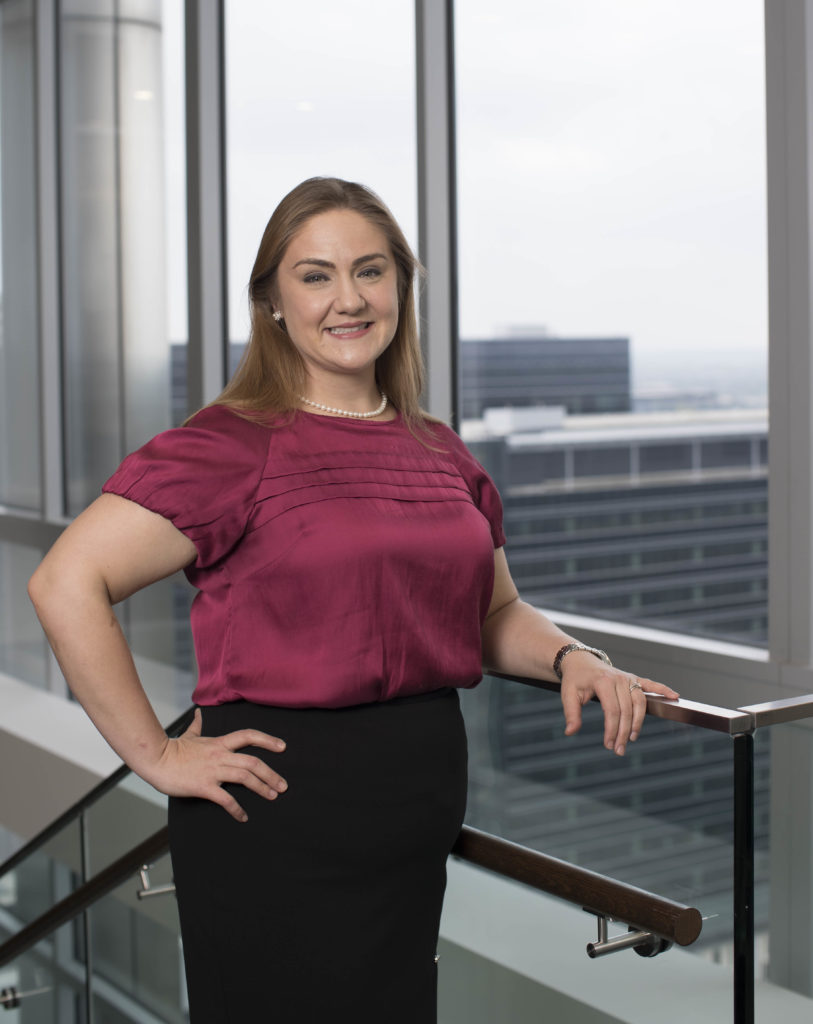
Small and mighty: That’s how BMC Software general counsel Pat Tagtow describes his legal department.
So Tagtow and his team really had their hands full when it came time last year for its private equity owner Bain Capital to exit the company, whether it be through a sale to another company or private equity firm or through an initial public offering. “At that point, we were looking at varying paths,” he said. “It was pretty exciting.”

Tagtow and his M&A/capital markets lieutenant, senior counsel Robin Preussel Phillips, got to work. In the end, BMC announced May 29 that it was sold to another private equity firm, KKR.
The parties didn’t disclose terms, but the New York Post pegged the sale price at around $8.3 billion, citing unnamed sources. If accurate, that would have represented a tidy profit for Bain and fellow investor Golden Gate, which bought the company in 2013 for $6.9 billion. Tagtow wouldn’t comment on the sale price.
Tagtow’s and Phillips’ handling of the sale led them to be named a finalist for the M&A Deal of the Year Award by the Houston chapter of the Association for Corporate Counsel.
Tagtow was born in St. Paul, Minnesota, and reared there as well as in Chicago and Dallas, where he landed when he was in the ninth grade.

His parents weren’t lawyers; his father was more on the computer side, working for a company that monitored ATM machines (his brother majored in computer science). Tagtow also was into technology, but became interested in the law after hearing the general counsel of Peterbilt Motors speak at his middle school. He was 12.
“I was wondering what I was going to do with my life. Fireman, astronaut – I knew it wasn’t going to be one of those,” he said. “It was an epiphany.”
Phillips was born and raised in Huntsville, Alabama. There weren’t any lawyers in her family, either: Her mother was a dog groomer, her dad was an engineer, and her stepfather was in construction sales. “I liked to argue with my mother,” she said. “I had to find a way to make money with that.”
Tagtow went to the University of Houston Law Center, and Phillips attended Yale Law.
Tagtow cut his teeth at Johnson & Gibbs and Haynes and Boone before joining BMC in 1999 as senior counsel of litigation. Phillips was a law clerk to U.S. District Court Judge R. David Proctor and U.S. Court of Appeals Judge William H. Pryor Jr. and a senior associate at Norton Rose Fulbright in Houston before joining BMC in 2014.
“It’s odd for a transactional lawyer to clerk,” she said. “But I was offered both of the jobs on the same day and thought, ‘Wait, I’ve really made it, I’m really good at this and can do this. And people really like me.’”
Tagtow said BMC’s general counsel before him, Tim Shen and Bob Whilden, were both instrumental in helping him prepare for the post. “Whilden was a senior lawyer at V&E before coming to be BMC’s general counsel and held a world record for foot racing in the senior age group,” he said. “He was very instrumental in my development.”
Phillips said her mentors at Fulbright were Peggy Heeg and Laura McMahon – the firm’s only active female corporate partners in the Houston office at the time. She also credits Gene Lewis and Efren Acosta, with whom she worked on her first big deal: Ecolab’s $2.2 billion purchase of Champion Energy in 2012. (Heeg is now at Reed Smith, McMahon moved to BakerHostetler before retiring, and Acosta is at Baker Botts.)
“It was fun coordinating the diligence team, keeping the documents,” she said. “It helped prepare me for this deal.”
Tagtow said his most impactful situation in the law was when BMC went through an activist situation with Paul Singer’s Elliott Management, which morphed into a proxy battle, a director shakeup and then the company’s sale to Bain.
“The process was very involved,” he said. “And in the middle of all of that, there was a significant patent infringement lawsuit, which was a major endeavor and successfully concluded, but it can suck you in 100 percent for months and months.”
BMC was a prototypical case of a technology company that had “lost its mojo,” a Reuters columnist wrote in 2013. While its mainframe computer business was solidly profitable, its growth became sluggish, its margins were narrower than its peers, and it had “squandered capital on acquisitions in an attempt to stay relevant,” the news agency said.
Bain’s eventual desire to exit BMC wasn’t a surprise, as the investors had owned the company for five years – a typical holding period for private equity firms. After looking at various options, including an IPO and a sale to another private equity firm or a strategic company (“The rumor mill had Dell buying us three times,” Tagtow joked), the company began pursuing a deal with KKR.
BMC went with Kirkland & Ellis as its outside legal counsel primarily with lawyers out of New York, as the firm was Bain’s legal counsel and had worked on the purchase of BMC in the first place. KKR hired Simpson Thacher & Bartlett lawyers in New York.
“At one point there were 30 lawyers at Kirkland working on various tracks,” Tagtow said.
BMC’s lawyers weren’t merely traffic controllers but very involved in the process, largely driven by the company’s culture and the attorneys’ desire to give their client the best advice, Tagtow said. “It was a very small team, with the top three-fourths of the pyramid being Robin,” Tagtow said.
Tagtow said there were 50 people at the company “interacting all the time” on the deal, including the finance and tax departments, from the very initial drafts to negotiations to documenting the deal in the wee hours of the night “until the ink dried.”
Phillips said it was a 10-month process, including the auction – enterprise software maker CA Inc. and private equity firm Thoma Bravo were thought to be interested – and bank financing for the KKR purchase. There also was regulatory approval, with 15 antitrust filings in all, including from the Committee on Foreign Investment in the U.S. given overseas investors in Bain’s ownership group. “And through it all, we had to keep the board informed,” she said.
Tagtow’s office became the de facto “war room,” with chief intellectual property counsel Irene Kosturakis weighing in on patent matters. The rumor articles had been flying around well before this, so Tagtow said there were a lot of “private, closed-door meetings.”
Tagtow said the transaction was challenging because of the multiple tracks being explored (“You couldn’t afford to peddle off on one option,” he said) and then pursuing the single track with KKR, which required all hands on deck 24/7 until closing because of the risk of a downturn in the broader market.
“In private equity, there’s never a comfortable pace,” he said. “There are only two modes: standing still and then sprinting as fast as possible and not stopping until you’re there.”
Phillips agreed. “Pursuing the different tracks was like being back at a law firm again. But once private equity decides something, you have days rather than weeks,” she said. “I had never experienced that before. It’s amazing what a team can do in 72 to 96 hours.”
The transaction – completed this past October – represented one of the largest tech-sector deals by any of the private equity firms on either side – and the biggest acquisition by KKR since the 2008 financial crisis.
Earlier this month, former BMC chairman and CEO Bob Beauchamp came back to lead the company as president and CEO until a replacement could be found. Peter Leav, who was CEO for two-and-a-half years during Bain’s ownership, stepped down for a “planned career break” after KKR’s acquisition.
Tagtow notes that Beachamp was chairman of BMC for 10 years until the sale, so he was separated from the company for only a short time. Still, it was something of a leadership homecoming for a company that’s been on an ownership rollercoaster.
